
Hong Kong saw a dark summer tinted by an increasing intensity of violence as what started as a demand to revoke a disputed fugitive bill escalated into political turmoil engulfing the once peaceful and orderly Asian financial hub.
Three months have passed since the first protest broke out on June 9, and the situation showed no sign of abating.
On the frontline, the city's police force has been bearing the brunt of unlawful acts by radical protesters as they wreaked havoc across busy districts, setting fire to public property, surrounding police stations, vandalizing Mass Transit Railway (MTR) stations and paralyzing traffic to the airport.
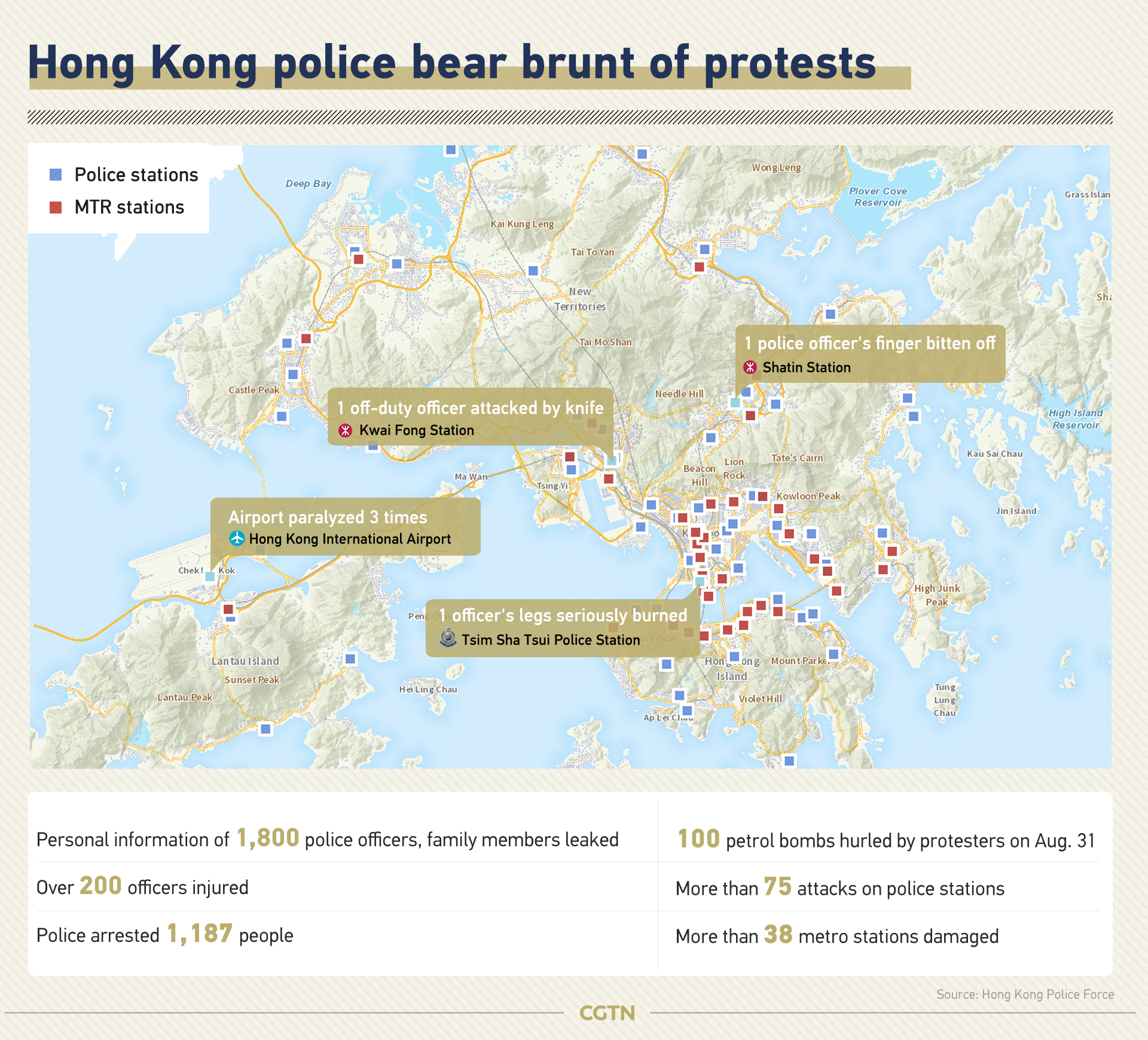
"These radical protesters are tearing our society apart and tearing down our core values, including the rule of law," Tse Chun-chung, a senior police officer told a press briefing, pledging every effort to bring all offenders to justice. Since June 9, the Hong Kong police said they have arrested 1187 people suspected of participating in serious violent incidents on various charges.
So what are the legal consequences?
Below is a list of some of the most frequently occurring criminal offenses conducted during protests. Under Hong Kong law, the corresponding convictions can carry a six-month to life sentence.
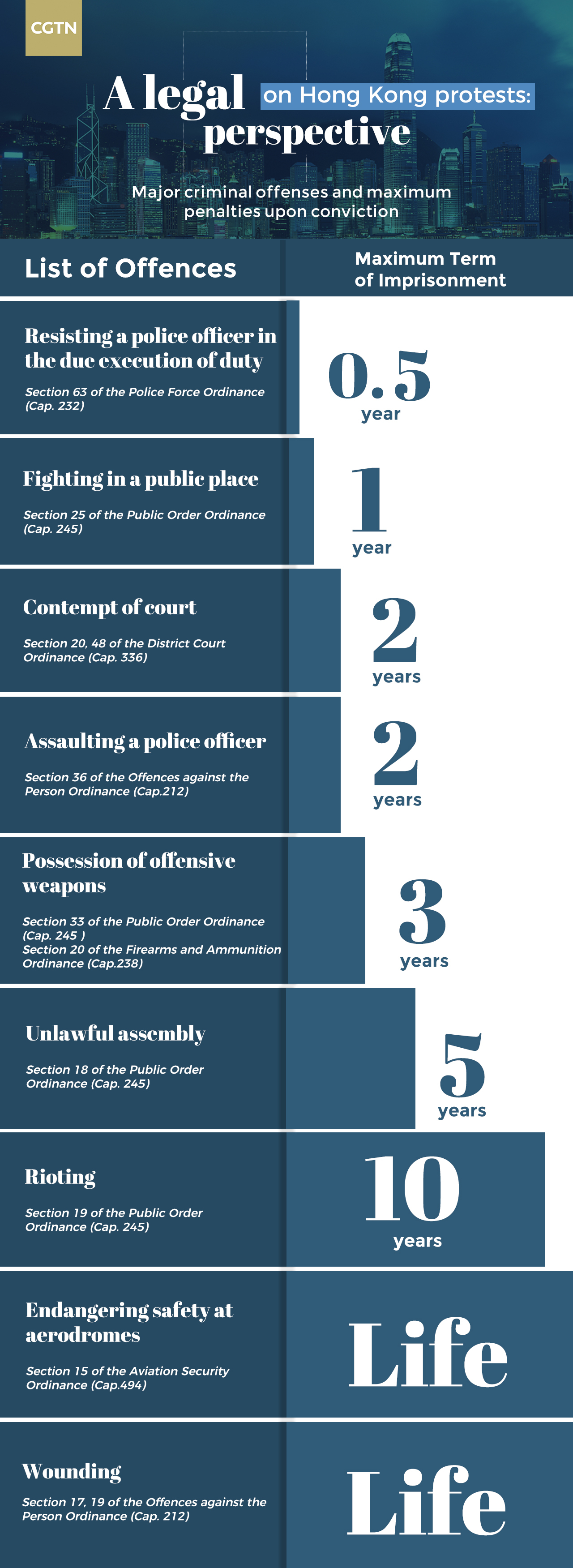
Unlawful assembly, rioting and similar charges
According to the Public Order Ordinance, demonstrators' actions constituted unlawful assembly, rioting and sometimes unlawful fighting in a public space, when "three or more people assemble together and conduct themselves in a disorderly, intimidating, insulting or provocative manner that commits a breach of the peace."
In some of the most intense confrontations between demonstrators and the police since protests escalated in June, large gangs of rioters hurled bricks, sticks, daggers, hammers to attack police officers. Some randomly threw self-made petrol bombs from atop footbridges at protest sites, hitting innocent passersby and reporters.
As a result, the police said over 200 officers sustained multiple serious injuries. Some were burned; one officer got part of his finger bitten off, and a 50-year-old, off-duty officer was stabbed in his limbs and back during a knife attack.
These rampant acts constituted assaulting and resisting a police officer in the due execution of duty, offenses for any person who "assaults with intent to commit an offense on a police officer," "resist lawful apprehension" or "willfully obstructs any police officer in the due execution of his duty."
The charge of wounding also applied, as it is defined as "any person who unlawfully and maliciously wounds or inflicts any grievous bodily harm upon any other person."
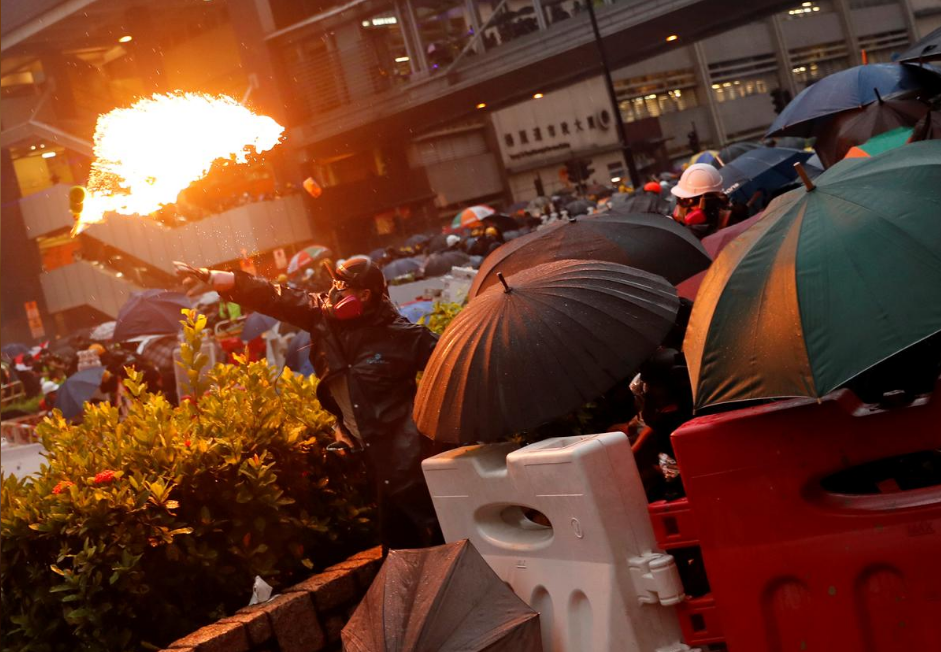
Violent protesters throw petrol bombs at the police line as protesters clash with riot police during protests at Tsuen Wan in Hong Kong, August 25, 2019. /Reuters Photo
Possession of offensive weapons
On August 31, protesters used dismantled railings and metal poles to destroy buildings and set fire to barricades on roads, posing a grave threat to public safety. At least 100 petrol bombs were hurled, and nearly a third of more than 90 MTR stations were damaged in just one day.
As the intensity of violence increased, some rioters resorted to using implements, such as air guns and slingshots, some of them deadly.
A protester was even seen using a modified replica of a U.S.-made M320 grenade launcher. They all fell under possession of offensive weapons, defined as having any offensive weapon, including an imitation firearm, in a public place without lawful authority or reasonable excuse.
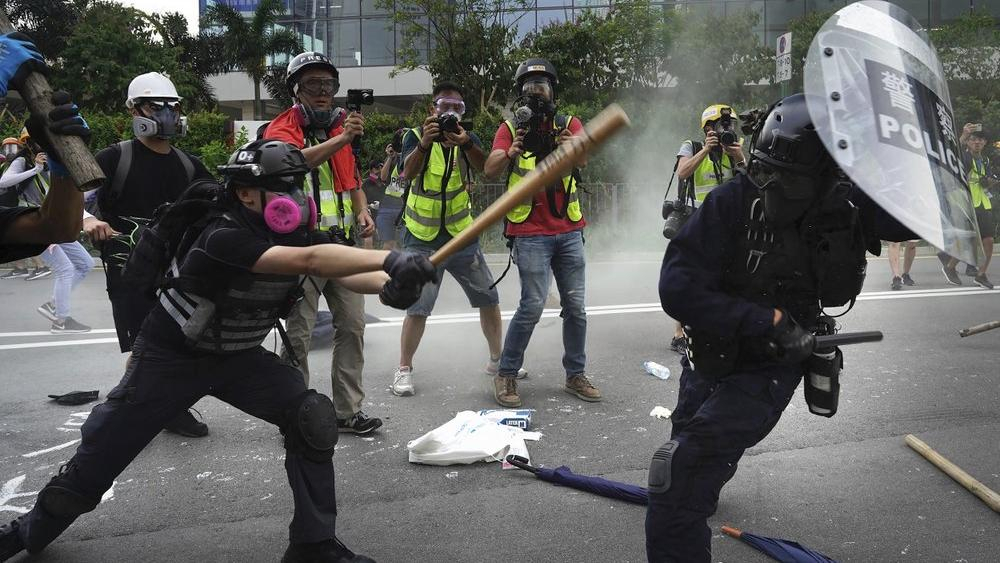
Protesters clash with police during a rally at Tsuen Wan, in Hong Kong, China, August 24, 2019. /AP Photo
Endangering safety at aerodromes
On August 13, the Hong Kong International Airport was paralyzed for two days in a row. A sit-in protest quickly turned confrontational and violent as protesters unlawfully blocked passengers from boarding their planes and brutally beat up two visitors from the Chinese mainland.
According to the Aviation Security Ordinance, "Any person who commits willfully in an aerodrome serving international civil aviation any act of violence which endangers the safety of persons in the aerodrome or operation of the aerodrome" is endangering safety at aerodromes and may face life imprisonment upon conviction.
On September 1, protesters again vandalized the airport terminals and caused temporary suspension of the Airport Express service, ignoring the injunction order that was in place – all of them could be charged with contempt of court for disobeying a judgment or order of the court.
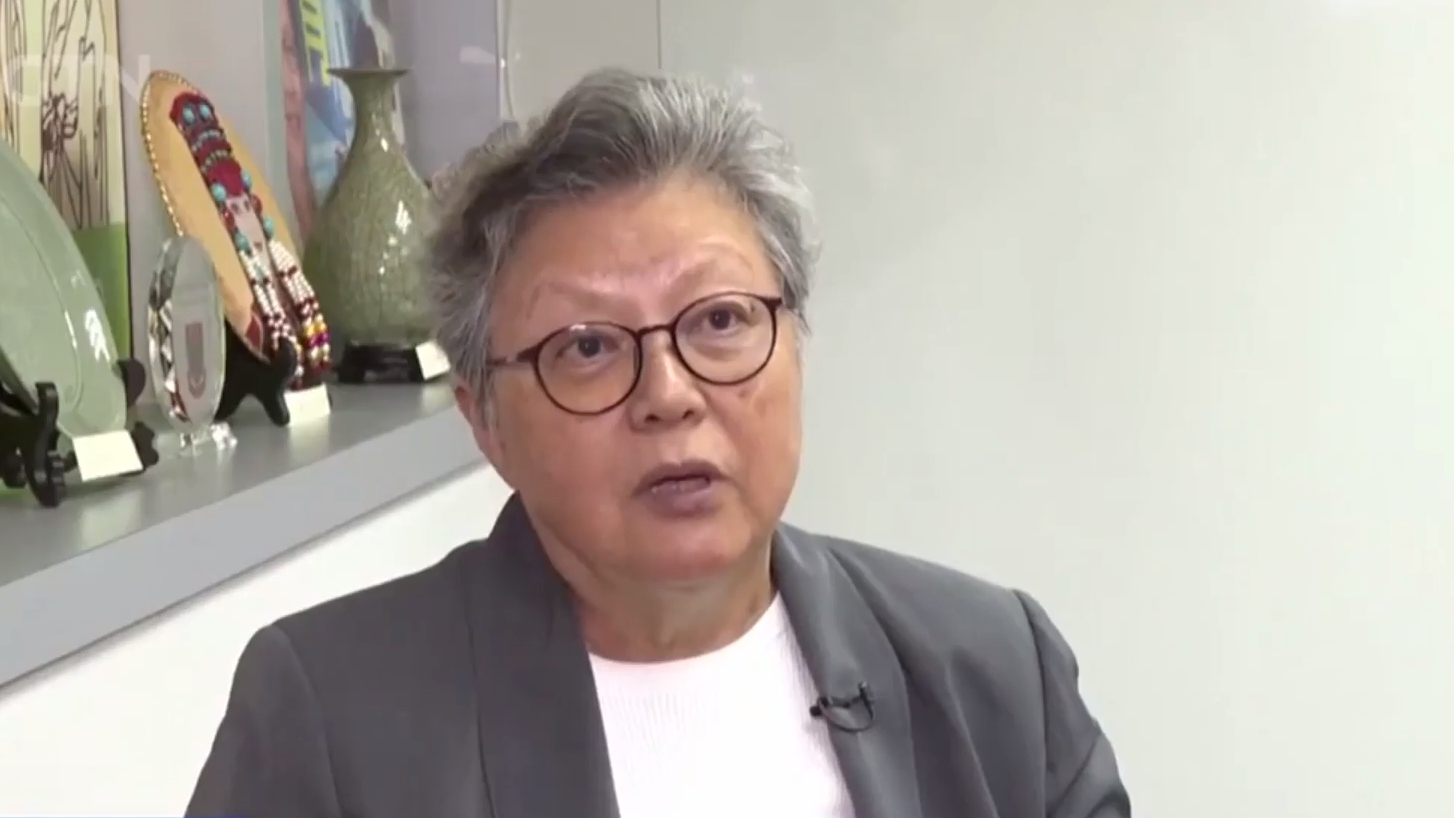
Breaking the law for the so-called "rule of law"
Legal professionals have expressed worries that recent turmoil would erode Hong Kong's rule of law, voicing their support for police and government's law enforcement.
"Violence will never help achieve any goal. It would instead gradually hurt Hong Kong's freedom and cause its human rights to move backwards, not to mention the guarantee of democracy," Rita Fan Hsu Lai-tai, former president of the Legislative Council said.
"This is because the rioters are not only challenging the government of the Hong Kong Special Administrative Region, but also the 'One Country, Two Systems' principle. They are asking for so-called independence for Hong Kong, which cannot be tolerated under any circumstance," she stressed. "It would only make Hong Kong worse."
Starry Lee Wai-king, a member of Legislative Council urged all to stand up against rioters because everyone has been "extremely tired of more and more violent acts and criminal sabotage."
It is ironic how those who protested against the fugitive bill over fears of it eroding the city's "much-cherished" judicial system in the first place are now engaged in riotous behavior that is brazenly breaking the law.
(Graphics by Jia Jieqiong, Liu Shaozhen, Zhang Xuecheng)

Copyright © 2018 CGTN. Beijing ICP prepared NO.16065310-3
Copyright © 2018 CGTN. Beijing ICP prepared NO.16065310-3